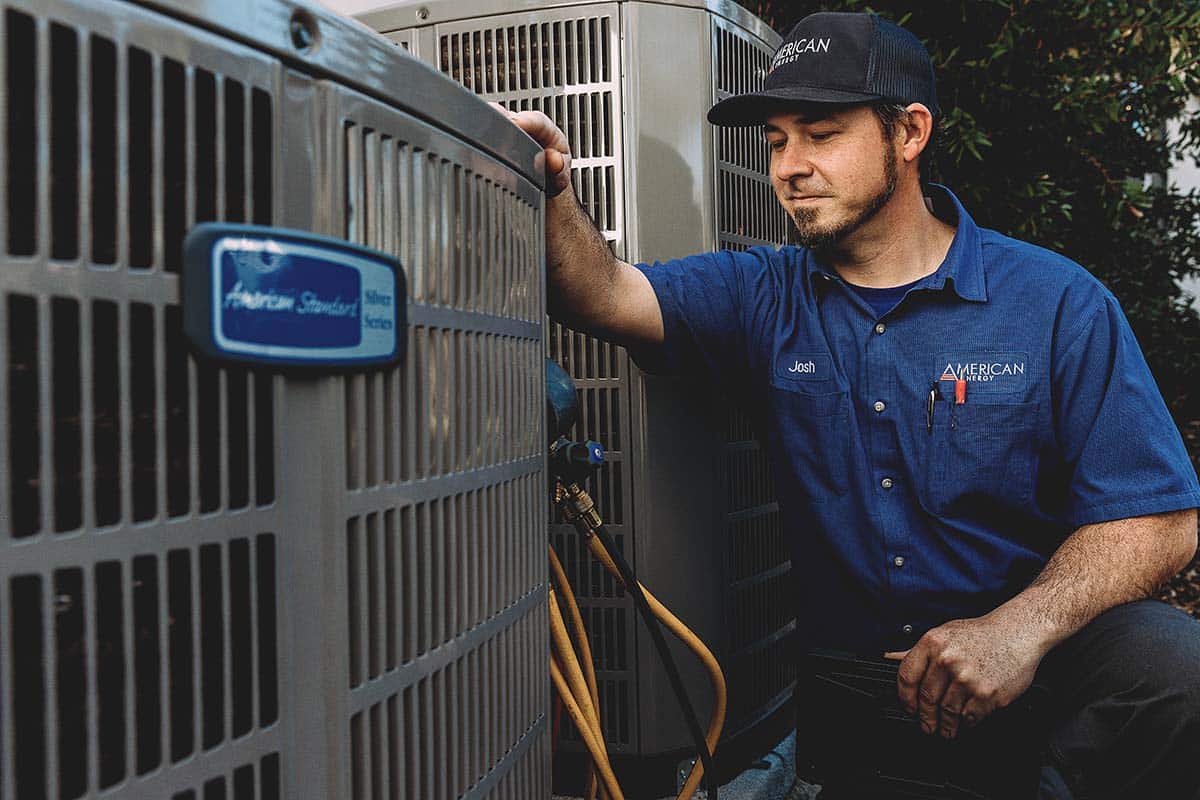
What Is The Most Expensive Part In An HVAC Unit In Loomis, CA?
Introduction
In the charming town of Loomis, California, where warm summer days and cool winter nights are the norm, homeowners rely heavily on their HVAC systems. These systems not only ensure https://americanenergyair.com/loomis-hvac-company-heating-air-conditioning/ comfort but also play a significant role in energy efficiency and air quality. However, there's one component within your HVAC system that stands out when it comes to cost—often leaving many homeowners scratching their heads. Understanding this component can save you money, time, and headaches down the road.
In this article, "The Costliest Component of Your HVAC System: Insights for Loomis, CA Homeowners," we'll delve into the nuances of HVAC systems and uncover the most expensive element within them. We’ll explore its function, maintenance tips, signs of wear and tear, and how to choose the best HVAC services near me for your needs.
The Costliest Component of Your HVAC System: Insights for Loomis, CA Homeowners
When we talk about cost in an HVAC system, we're generally referring to two aspects: upfront purchase price and ongoing operational costs. Among these components—be it your furnace, air conditioner, or heat pump—the compressor often emerges as the costliest item in terms of replacement and repair.
What is an HVAC Compressor?
An HVAC compressor is essentially the heart of your air conditioning system. It pumps refrigerant throughout your cooling system and is responsible for converting low-pressure gas into high-pressure gas. This process helps facilitate the cooling cycle that keeps your home comfortable during those hot Loomis summers.


Why is the Compressor So Expensive?
Signs Your Compressor May Be Failing
How to Maintain Your Compressor
Regular maintenance can extend the life of your compressor:
- Change air filters regularly to avoid airflow restrictions.
- Schedule annual inspections with an experienced technician who offers the best HVAC services near me.
- Keep outdoor units clear from debris to ensure proper airflow.
Understanding Other Components of Your HVAC System
While we focus on compressors here, it's crucial to understand other components that contribute to overall costs:
Furnace vs Air Conditioner Costs
Furnace Overview
- Initial Cost: Furnaces generally have lower initial costs compared to central air conditioning units.
- Lifespan: The average lifespan can range between 15-30 years.
Air Conditioner Overview
- Initial Cost: Air conditioners tend to have higher upfront costs due to installation complexities.
- Lifespan: Typically lasts between 10-15 years.
Heat Pumps Explained
Heat pumps serve dual purposes—heating in winter and cooling in summer—with varying installation costs depending on type (air-source vs ground-source).

Energy Efficiency Ratings Matter!
Understanding SEER (Seasonal Energy Efficiency Ratio) ratings can help you evaluate potential energy savings by comparing different models when contemplating replacements or upgrades.
Choosing an Energy-Efficient Unit
Opt for models with high SEER ratings; they may have higher upfront costs but will save you money over time on energy bills.
Common Myths About HVAC Systems
Myth #1: Bigger is Better
Many believe that larger units are more effective; however, oversized units lead to inefficient operation and increased wear on components like the compressor.
Myth #2: Maintenance Isn’t Necessary
Neglecting regular tune-ups can lead to costly repairs down the line—especially if one relies heavily on their system during peak seasons.
Frequently Asked Questions (FAQs)
What are signs that my HVAC system needs repair?
Look out for unusual noises, inconsistent temperatures across rooms, or increased energy bills—all potential indicators of issues requiring immediate attention from local experts offering the best HVAC services near me.
How often should I have my HVAC system serviced?
It’s recommended to have an annual inspection before peak seasons begin—spring for AC units and fall for heating systems—to catch any potential issues early on.
Can I replace just my compressor?
Yes! If diagnosed early enough by a qualified technician specializing in comprehensive diagnostics as part of their best hvac services near me offerings—it’s often possible without replacing the entire unit!
What is the average lifespan of an HVAC system?
Generally speaking—a well-maintained unit lasts anywhere between 10-30 years depending on its type and usage patterns!
How much does it typically cost to replace a compressor?
Costs vary widely based on specific brand/model but generally range between $800-$2500 including labor!
Is there any way to lower my monthly utility bills?
Absolutely! Regular maintenance checks coupled with smart thermostat usage can significantly impact overall energy consumption leading towards lower bills month-to-month!
Conclusion
Understanding "The Costliest Component of Your HVAC System: Insights for Loomis, CA Homeowners" empowers you as a homeowner. By recognizing signs of wear and tear in your compressor and implementing effective maintenance strategies alongside utilizing local services offering top-rated support—you’ll not only prolong its life but also enhance overall efficiency while saving money!
Your comfort depends largely upon how well-informed you are regarding these critical components within your home’s heating/cooling ecosystem! Don’t let unexpected breakdowns catch you off guard; stay proactive by reaching out today!
If you're looking for reliable assistance from professionals who prioritize quality service above all else—seek out recommendations for “the best hvac services near me” today!